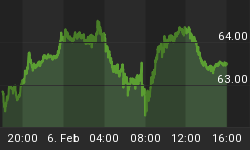Congressional hearings, White House damage control, endless op-eds, accusations, and defensive denials. Controversy over the events in Benghazi last September took center stage in Washington and elsewhere last week. However, the whole discussion is again more of a sideshow. Each side seeks to score political points instead of asking the real questions about the attack on the US facility, which resulted in the death of US Ambassador Chris Stevens and three other Americans.
Republicans smell a political opportunity over evidence that the Administration heavily edited initial intelligence community talking points about the attack to remove or soften anything that might reflect badly on the president or the State Department.
Are we are supposed to be shocked by such behavior? Are we supposed to forget that this kind of whitewashing of facts is standard operating procedure when it comes to the US government?
Democrats in Congress have offered the even less convincing explanation for Benghazi, that somehow the attack occurred due to Republican sponsored cuts in the security budget at facilities overseas. With a one trillion dollar military budget, it is hard to take this seriously.
It appears that the Administration scrubbed initial intelligence reports of references to extremist Islamist involvement in the attacks, preferring to craft a lie that the demonstrations were a spontaneous response to an anti-Islamic video that developed into a full-out attack on the US outpost.
Who can blame he administration for wanting to shift the focus? The Islamic radicals who attacked Benghazi were the same people let loose by the US-led attack on Libya. They were the rebels on whose behalf the US overthrew the Libyan government. Ambassador Stevens was slain by the same Islamic radicals he personally assisted just over one year earlier.
But the Republicans in Congress also want to shift the blame. They supported the Obama Administration's policy of bombing Libya and overthrowing its government. They also repeated the same manufactured claims that Gaddafi was "killing his own people" and was about to commit mass genocide if he were not stopped. Republicans want to draw attention to the President's editing talking points in hopes no one will notice that if the attack on Libya they supported had not taken place, Ambassador Stevens would be alive today.
Neither side wants to talk about the real lesson of Benghazi: interventionism always carries with it unintended consequences. The US attack on Libya led to the unleashing of Islamist radicals in Libya. These radicals have destroyed the country, murdered thousands, and killed the US ambassador. Some of these then turned their attention to Mali which required another intervention by the US and France.
Previously secure weapons in Libya flooded the region after the US attack, with many of them going to Islamist radicals who make up the majority of those fighting to overthrow the government in Syria. The US government has intervened in the Syrian conflict on behalf of the same rebels it assisted in the Libya conflict, likely helping with the weapons transfers. With word out that these rebels are mostly affiliated with al Qaeda, the US is now intervening to persuade some factions of the Syrian rebels to kill other factions before completing the task of ousting the Syrian government. It is the dizzying cycle of interventionism.
The real lesson of Benghazi will not be learned because neither Republicans nor Democrats want to hear it. But it is our interventionist foreign policy and its unintended consequences that have created these problems, including the attack and murder of Ambassador Stevens. The disputed talking points and White House whitewashing are just a sideshow.















